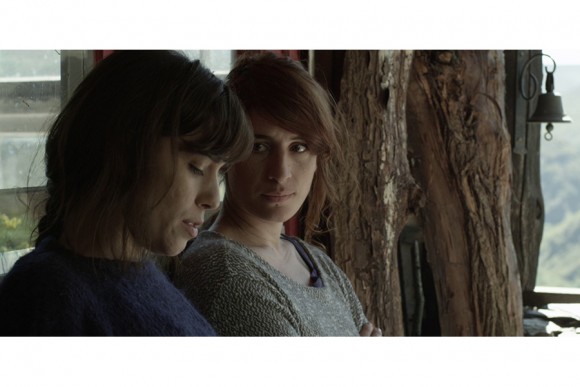A young French girl with nothing but matryoshka dolls in her backpack leaves Madrid for a little remote village with a consensual social structure. Skipping a long selection process, she soon gets appointed as an assistant to a local teacher and develops a strong relationship with several commune members. But no one knows who this enigmatic women is, where she came from and what for. As the story unfolds, it becomes clear that the protagonist herself hasn't the slightest conception of this either. Julie seems not only to be unable to face her demons, but can’t even look her partner in the eye when having a fight. She's hurt and tortured, desperately willing to live freely and love unconditionally but possessing no knowledge of these things or relevant experience.
The story takes place in an actual ecovillage located in the Leon region of El Bierzo, founded by a group of people 25 years ago, where they continue to live and encourage newcomers to join their community. The commune practises an idealistic philosophy, based on the assumption that everyone behaves ethically, while striving for harmony with nature - planting trees in the memory of the deceased and giving birth underwater. What seemed at first like a perfect utopian society with brave individuals, who have found their path in life, becomes demystified, revealing that conventional institutions like the police and medical care haven't become obsolete when it comes to domestic violence or existential concerns.
While communicating the idea that one can escape everything but oneself and letting go of your paternal heritage without establishing your identity won't take you far, Julie brings out our most daring inner impulses. It also makes us wonder whether you can really start afresh honestly without reflecting on your past.
The audience should definitely hand it to the director for casting Marine Discazeaux as the lead. Marine, who González de Molina spotted by chance in a bar, is a natural and suits the depicted environment perfectly with her vague look, fiery locks and anxious hand-rubbing. Praise for a convincing presence is also due to professional actor Silvia Maya. She plays Victoria, a strong-willed school teacher who eventually becomes romantically involved with Julie.
With its focus on back-to-nature parenting Julie is reminiscent of one of this year’s most warm-hearted movies, Matt Ross' Captain Fantastic. But it struggles to deliver full-fledged characters and depth to its portrayal of a ‘promised land' social order. At some point the director loses focus trying to cover all the pressing issues of modern western society from identity search to female leadership, resulting in the film leaving an aftertaste akin to an English trifle with a layer of beef and beans: all taste good separately, but combined are too much to digest at once.
Though the script lacks a backbone, graceful cinematography takes us to a rendezvous with mesmerizing nature, accompanied by a deeply calming and dreamy score by Spanish composer Bel Bee Bee. The mountain landscape is infused with free spirit and a hope of deliverance that quickly generates a genuine desire to leave everything behind and find quiet refuge in a hidden forest.
Julie was produced by Mariano Baratech. Silvia Iturbe is in charge of the international sales. The film was made with exclusively private funding and using 80% solar energy, which perfectly illustrates the director's ideology.




















